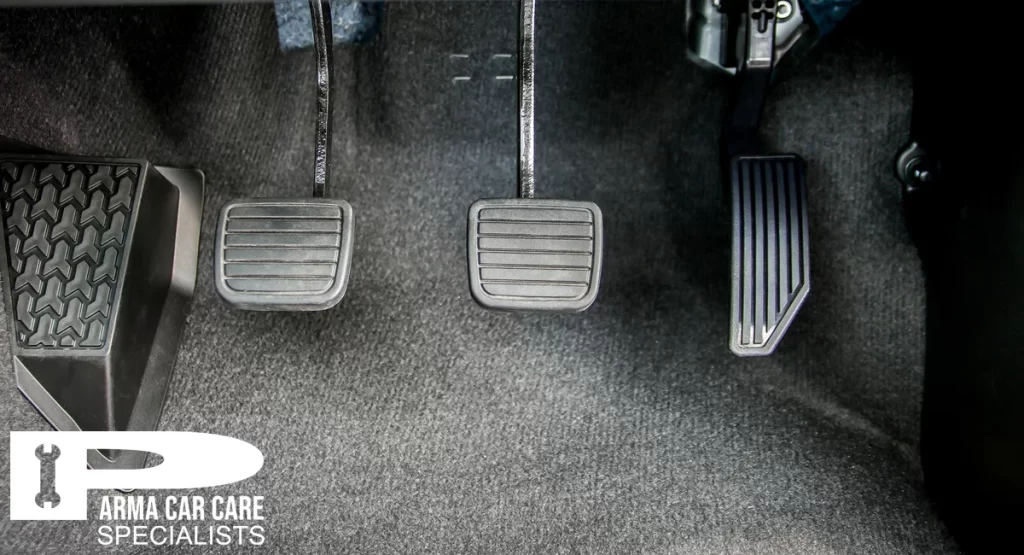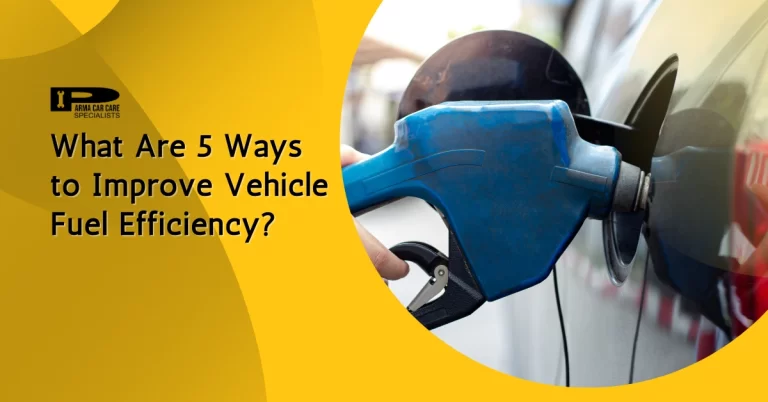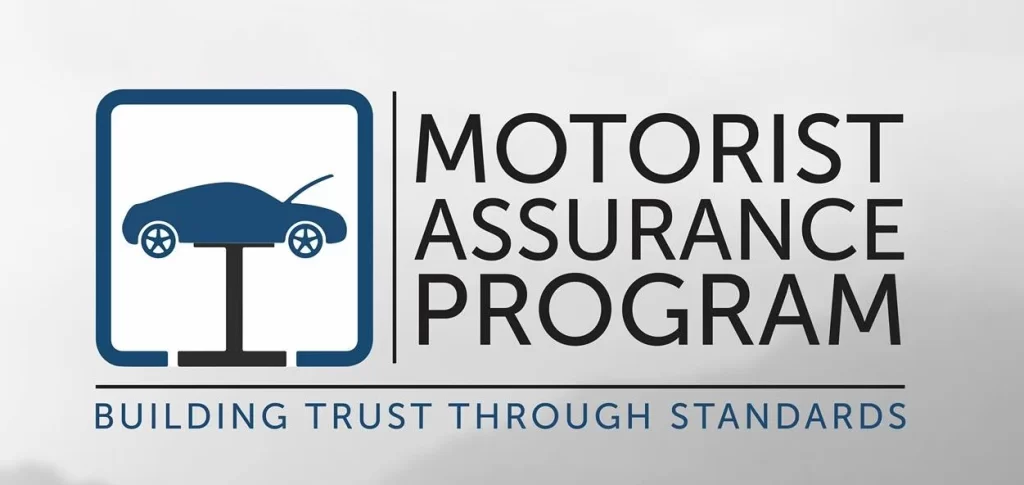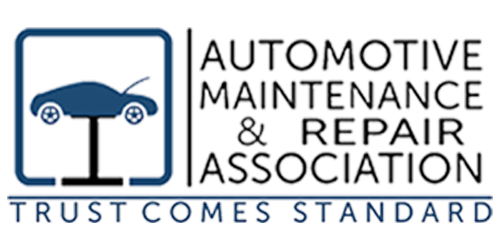Few vehicle components are as vital as the braking system. If this is well maintained, it ensures your safety and contributes to an enjoyable driving experience.
Every car owner knows just how important the brakes are. Still, not everyone fully understands its intricate workings and impact on vehicle performance, especially when a brake repair becomes necessary.
How Do Brakes Affect a Car?
Brakes are the cornerstone of an automobile’s safety and control, impacting its ability to decelerate, stop, and maneuver effectively. When you engage the brake pedal, a complex process is initiated, converting kinetic energy into heat, gradually slowing down your car. A well-maintained brake system ensures the process flows efficiently, allowing for confident and safe stops.
What Is the Most Critical Component in a Braking System?
The brake shoes or pads are the most critical component within the auto braking system. These powerful parts convert the vehicle’s forward momentum into controlled deceleration.
When the brake pedal is pressed, the pads clamp onto the spinning rotors, generating friction that transforms kinetic energy into heat, effectively stopping your car.
What Does a Full Brake Service Include?
It encompasses a comprehensive range of tasks aimed at maintaining the functionality of a car’s braking system. The service involves thoroughly inspecting all brake components, including the brake pads, rotors, lines, and fluid. The brake system will be examined for signs of uneven wear or damage.
How Often Should You Perform Maintenance on Brake Systems?
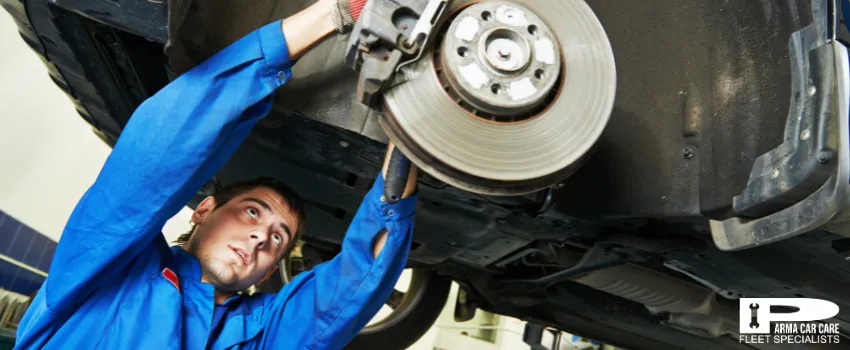
The frequency of brake maintenance depends on various factors, although a comprehensive brake inspection should be performed once a year. However, if you frequently drive in stop-and-go traffic or along hilly terrain, you might need more frequent maintenance checks.
What Does Brake Maintenance Include?
Brake maintenance includes several crucial tasks designed to preserve the functionality of your car’s braking system. Among others, the brake pads get examined for wear and tear and replaced accordingly. Brake fluid is also checked to ensure efficient transmission of the braking force. Additionally, mechanics will assess the overall performance of the brake system to see if there are problem signs.
How Often Should You Get Brake Maintenance Done?
The brake system should be inspected at least once a year as part of routine vehicle maintenance. However, more frequent inspections may be necessary if you frequently drive in stop-and-go traffic or cover a high mileage. In any case, adhering to a maintenance schedule can help your braking system to remain fully functional.
What Are the Common Brake Problems in Cars?
The following are the brake problems common in most cars:
1. Squeaking Sounds
High-pitched noises when you step on the brakes often indicate worn brake pads. The built-in wear indicators emit the sounds, signaling it’s time for a pad replacement.
2. Grinding Noise
This suggests that you have severely worn brake pads. If not addressed promptly, damage to the rotors can ensue, which can be serious.
3. Spongy Brake Pedal
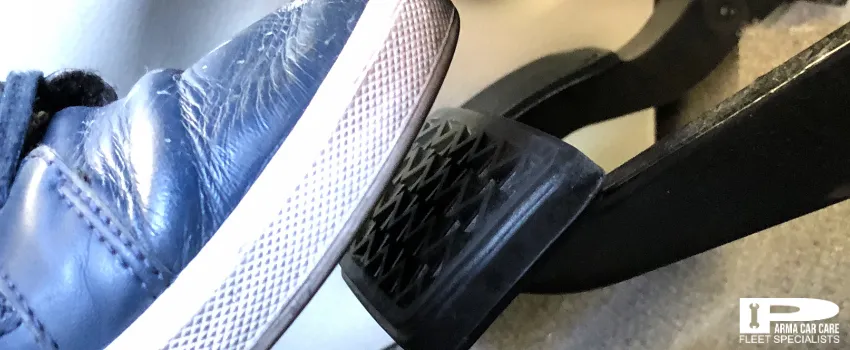
If the pedal feels mushy or sinks to the floor when pressed, air might be in the brake lines. This can compromise braking efficiency.
4. Fluid Leaks
Leaking brake fluid can lead to decreased braking power and potential contamination. Addressing this problem promptly is required to maintain brake system integrity.
What Contributes to Poor Braking?
Several factors contribute to poor braking performance in vehicles. These include:
1. Fluid Contamination
Moisture infiltration can cause the brake fluid to become ineffective at transmitting hydraulic pressure. Contaminated brake fluid can also lead to spongy brakes and decreased responsiveness.
2. Corroded Brake Lines
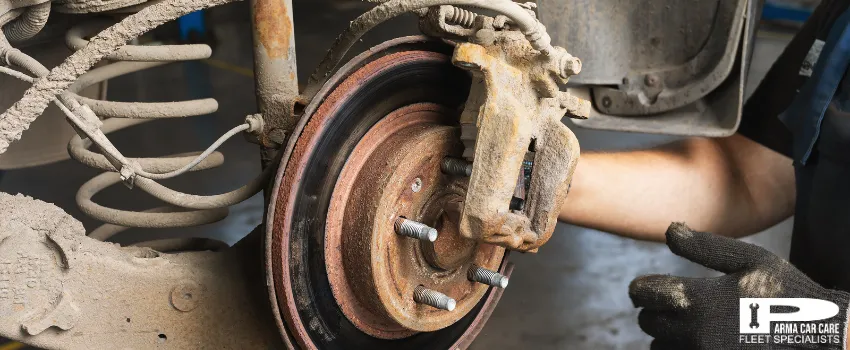
When corrosion enters the brake lines, it can compromise the flow of the brake fluid. This can lead to reduced braking efficiency.
3. Incorrect Brake Adjustments
Over time, several brake components may require adjustments to maintain proper alignment and performance. If the adjustments are done erroneously, uneven to poor braking can result.
Is It Worth Getting the Brakes Serviced?
Getting your car brakes serviced is undeniably worth the investment. This helps ensure that your vehicle’s braking system remains in optimal condition, contributing significantly to your car’s overall performance. A well-serviced brake system also offers reliable stopping power, reducing the risk of road accidents.
What Are the Advantages of a Well-Maintained Brake System?
If your braking system is well-maintained, you can expect to have:
1. Enhanced Safety
A properly maintained brake system guarantees that your vehicle responds promptly and predictably when you have to stop suddenly. This translates into improved safety for you.
2. Optimal Car Performance
Well-maintained brakes provide consistent and reliable stopping power, contributing to a smoother driving experience. They also allow you to navigate different road conditions confidently.
3. Extended Parts Lifespan
Regular brake maintenance prevents excessive wear on critical components like rotors and pads. This can lead to a longer life span for these parts and minimizes the risks of having expensive repairs.
4. Savings
Investing in routine brake maintenance can prevent minor issues from developing into major problems. This can help you save money since you get to avoid costly repairs.
What Is the Indicator for Brake Failure?
The indicator for brake failure can be seen in various warning signs, the most prominent of which is the brake warning light on the dashboard. When this lights up, it can signal various brake-related issues, from worn brake pads to fluid leaks or even ABS system malfunctions. Addressing these issues promptly through professional inspection is fundamental to preventing complete brake failure.
What Happens If You Don’t Replace Brakes?
Neglecting to replace worn-out brakes can have dire consequences. In particular, when your brake pads become excessively worn, their ability to generate friction and effectively slow down your car diminishes significantly. This leads to extended stopping distances, increasing the risk of accidents.
How Often Do You Need to Change Your Brake Pads?
Most brake pads should be changed every 10,000 to 20,000 miles. However, this can vary, often due to driving conditions. If you usually travel across mountainous terrain, the pads might wear out quickly due to frequent braking. Conversely, your pads might last longer if you do a lot of highway driving with minimal braking.
What Are the Signals That a Brake Pad Is Worn-Out?
Check for the following as they are signs that you have worn-out brake pads:
1. Squealing Noise
A high-pitched squealing sound when you apply the brakes is a common indicator of damaged brake pads. The wear indicators on the pads produce the sound, alerting you that replacement is necessary.
2. Reduced Braking Performance
If you notice that your car takes longer to stop, it could be a sign of worn-out brake pads. Another telltale sign is when you must put more pressure on the brake pedal. The condition prevents the pads from producing the needed friction.
3. Shaking
If you get a shaking or vibrating feeling in the brake pedal, the pads are likely damaged. This can lead to an inconsistent braking experience and should be addressed right away.
What Happens When Brake Pads Are Damaged?
Damaged brake pads can reduce friction against the rotors, leading to diminished stopping power. This can increase the risk of accidents, especially in emergencies.
Moreover, damaged brake pads can cause uneven wear on the rotors, potentially leading to rotor warping. This further impairs braking efficiency and necessitates repairs involving rotor resurfacing.
Key Takeaway
The condition of a car’s braking system profoundly influences the vehicle’s road performance. Whether you’re a seasoned car owner or a novice driver, you should always preserve your auto’s safety through proper brake care.
Thus, if you notice signs indicating problems with the brakes, taking your car to an established auto shop is a logical move. Timely inspection is essential to ensure your vehicle can stop consistently, promoting road safety.
Get faulty car brakes resolved right away at Parma Car Care Specialists.
Any issue with your car brakes must be given immediate attention. For this, Parma Car Care Specialists is the only auto repair center you should visit.
We have a team of certified car technicians who deliver outstanding brake services in Seven Hills, OH. Rest assured that your vehicle is in safe and expert hands. Call us today.


